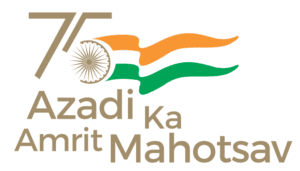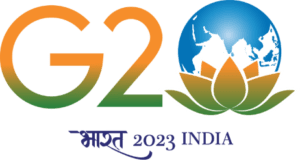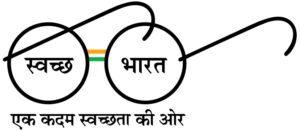REGULAR PGDM PROGRAMMES
The Regular Post Graduate Diploma in Management (PGDM) program offered by Tecnia Institute of Advanced Studies – Centre of Distance Learning (TIAS-CDL) is a flagship two-year program structured into trimesters. This program is meticulously designed to align with the principles outlined in the National Education Policy (NEP) 2020 and Global Contemporary Education Standards that goes beyond traditional boundaries. The curriculum is designed to foster critical thinking, problem-solving, and creativity, aligning with NEP 2020's emphasis on promoting 21st-century skills.
Additionally, the program integrates interdisciplinary learning components, enabling students to explore diverse perspectives and develop a well-rounded understanding of management principles. By incorporating case studies, industry projects, and experiential learning opportunities, the Regular PGDM program equips students with the practical skills and knowledge needed to thrive in today's dynamic business landscape.
Let’s delve into how this program aligns with these educational frameworks:
Let’s delve into how this program aligns with these educational frameworks:
1. Holistic Learning Approach:
- NEP 2020 emphasizes a holistic and multidisciplinary approach to education. The PGDM program at TIAS-CDL integrates various management disciplines such as finance, operations, human resources, and marketing, ensuring that students receive a well-rounded education.
- Through a combination of core courses, elective specializations, and practical learning experiences, students gain comprehensive knowledge and skills across diverse areas of management, preparing them for multifaceted roles in the corporate world.
2. Experiential and Practical Learning:
- NEP 2020 advocates for experiential learning and skill development. The PGDM program at TIAS-CDL incorporates case studies, industry projects, internships, and simulations to provide students with hands-on experience and real-world exposure.
- By engaging in practical applications of management theories and concepts, students develop problem-solving abilities, critical thinking skills, and decision-making capabilities essential for effective leadership in dynamic business environments.
3. Flexible and Contemporary Curriculum:
- The trimester-based structure of the PGDM program allows for flexibility and adaptability, enabling students to progress through the curriculum at their own pace while accommodating individual learning needs and preferences.
- The curriculum is regularly updated to reflect current industry trends, emerging technologies, and global business practices, ensuring that students are equipped with relevant and up-to-date knowledge in their respective fields of specialization.
4. Integration of Technology and Innovation:
- In today's interconnected world, global awareness and cultural sensitivity are essential competencies for effective management professionals. The PGDM program at TIAS-CDL incorporates international perspectives, case studies, and cross-cultural communication exercises to foster global competence among students.
- Through exposure to diverse business practices, market dynamics, and socio-cultural contexts, students develop a nuanced understanding of global issues and trends, preparing them for leadership roles in multinational organizations and diverse work environments.
5. Global Perspective and Cultural Sensitivity:
- NEP 2020 emphasizes the use of technology in education and encourages innovation- driven learning approaches. The PGDM program at TIAS-CDL leverages digital platforms, online resources, and interactive learning tools to enhance the educational experience.
- Students have access to virtual classrooms, multimedia course materials, and collaborative learning platforms, enabling them to engage in interactive discussions, research activities, and knowledge-sharing exercises with peers and faculty members.
6. Continuous Professional Development:
- NEP 2020 emphasizes the importance of lifelong learning and continuous professional development. The PGDM program at TIAS-CDL offers opportunities for ongoing skill enhancement, career advancement, and networking through alumni associations, industry partnerships, and professional development workshops.
- Graduates of the program are equipped with the knowledge, skills, and confidence to adapt to evolving industry demands, pursue further education, and make meaningful contributions to society as responsible and ethical leaders.
PGDM Specializations:
The Regular Post Graduate Diploma in Management (PGDM) program at TIAS-CDL is designed to align with NEP 2020 and global contemporary education standards by promoting holistic learning, experiential education, flexible curriculum, technological innovation, global perspective, and continuous professional development. Through this comprehensive and forward-thinking approach, the program prepares students to excel as competent, ethical, and visionary leaders in the ever-changing landscape of business and management.
1. Financial Management Specialization:
Curriculum Focus: The Financial Management specialization delves into financial analysis, investment management, risk assessment, corporate finance, and financial reporting. Students learn to interpret financial statements, evaluate investment opportunities, and manage financial resources efficiently.
Alignment with NEP 2020: NEP 2020 stresses the significance of promoting financial literacy and economic awareness among students to foster economic growth. The Financial Management specialization aligns with NEP 2020 by equipping students with the requisite knowledge and skills to comprehend financial markets, make informed financial decisions, and contribute to economic development through effective financial management practices.
2. Operations Management Specialization:
Curriculum Focus: The Operations Management specialization focuses on optimizing organizational processes, supply chain management, quality control, project management, and lean methodologies. Students learn to analyse operations, identify bottlenecks, and implement strategies to enhance efficiency and productivity.
Alignment with NEP 2020: NEP 2020 advocates for promoting vocational education and skill development to meet industry demands. The Operations Management specialization aligns with NEP 2020 by providing students with practical skills and knowledge required to manage operations effectively, meet customer expectations, and drive organizational performance in alignment with global standards.
3. Human Resource Management Specialization:
Curriculum Focus: The Human Resource Management specialization encompasses talent acquisition, performance management, employee relations, organizational development, and HR analytics. Students learn to recruit, train, and develop talent, manage employee relations, and foster a positive work culture.
Alignment with NEP 2020: NEP 2020 emphasizes the holistic development of students, including social-emotional learning and ethical values. The Human Resource Management specialization aligns with NEP 2020 by preparing students to lead and manage diverse teams, promote employee well-being, and uphold ethical principles in HR practices, thus creating inclusive and supportive work environments.
4. Marketing Management Specialization:
Curriculum Focus: The Marketing Management specialization explores consumer behaviour, market research, branding, digital marketing, advertising, and sales management. Students learn to develop marketing strategies, execute campaigns, and analyse market trends to meet customer needs and drive business growth.
Alignment with NEP 2020: NEP 2020 underscores the promotion of creativity, innovation, and entrepreneurship in education. The Marketing Management specialization aligns with NEP 2020 by fostering creative thinking, innovative problem-solving, and an entrepreneurial mindset among students. This prepares them to excel in the dynamic and competitive field of marketing, in accordance with global contemporary education standards.
In brief, each specialization within the PGDM program at TIAS-CDL is meticulously designed to provide students with specialized knowledge, practical skills, and ethical values pertinent to their chosen field of study. By aligning with the objectives of NEP 2020 and global contemporary education standards, the program ensures that graduates are well-prepared to meet the evolving demands of the business world and contribute meaningfully to organizational success and societal development.




